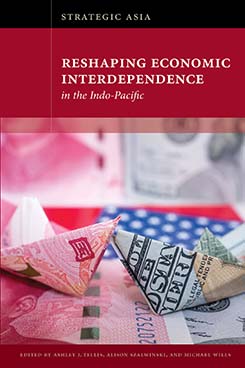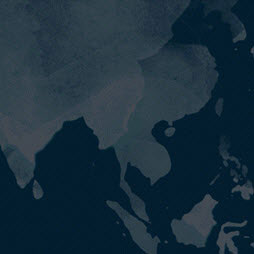South Korea’s Economic Statecraft: Between Interdependence and National Security
This chapter from Strategic Asia: Reshaping Economic Interdependence in the Indo-Pacific examines how weaponized interdependence and pressures to decouple have affected South Korea’s foreign policy.
EXECUTIVE SUMMARY
MAIN ARGUMENT
Given its asymmetric economic interdependence with China, on the one hand, and Washington’s demand for decoupling from Beijing, on the other, South Korea faces three key challenges: ensuring supply chain resilience, reducing heavy reliance on China for critical materials, and sustaining an adequate level of economic interdependence under decoupling pressure. Two areas where these challenges will be especially acute are the semiconductor industry and the supply chain for critical raw materials. In both cases, the South Korean government’s policies have focused on reducing the vulnerabilities entailed by economic interdependence and finding ways to navigate great-power rivalry. More broadly, South Korea’s search for strategic autonomy and economic prosperity requires a proactive and holistic approach that includes both individual and collective efforts for managing economic interdependence responsibly.
POLICY IMPLICATIONS
- While South Korea is concerned with reducing vulnerabilities arising from its interdependence with China, its economic statecraft is more preoccupied with U.S. pressures to decouple.
- South Korea seeks to define the scope of technologies sensitive to national security. There is a need for multilateral forums that set norms and rules that strike a balance between national security and economic interdependence.
- South Korea needs internationally coordinated strategies that constantly monitor risks to its supply chains, discourage the abuse of economic interdependence, and establish a new regional architecture that renovates value chains, resists overt protectionism, and promotes inclusive and resilient globalization.
Yul Sohn is a Professor in the Graduate School of International Studies and the Underwood International College at Yonsei University and President of the East Asia Institute in Seoul.
Hyo-young Lee is an Associate Professor at the Korea National Diplomatic Academy.
Strategic Asia
The Strategic Asia annual edited volume incorporates assessments of economic, political, and military trends and focuses on the strategies that drive policy in the region. Learn more about Strategic Asia.



